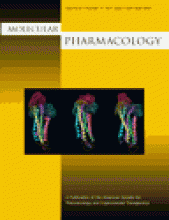Abstract
In the complex signal transduction networks involving G protein-coupled receptors there are numerous examples where Gi -linked receptors augment Gq-dependent signals. The mechanistic basis of such occurrences is thought to entail signal convergence at phospholipase Cβ (PLCβ) via the G protein βγ-dimers. Herein, we explored the possibility that augmentation by βγ-dimers requires preactivation of PLCβ. COS-7 cells were transiently cotransfected with cDNAs encoding various combinations of receptors and G protein subunits. The Gi-coupled δ- and κ-opioid receptors could not stimulate PLCβ unless they were coexpressed with Gα16. The opioid-induced response was dose-dependent and partially inhibited by pertussis toxin or coexpression with transducin, indicating the involvement of βγ-subunits released from the Giproteins. When PLCβ was preactivated by constitutively active mutants of Gα16, Gαq, or Gα14, opioids enhanced the activity by 80 to 300% and such responses were mostly pertussis toxin-sensitive. The opioid-induced enhancement was dose-dependent and could not be blocked by staurosporin, a protein kinase C inhibitor. Other Gi-coupled receptors that were ineffective on their own also acquired the ability to stimulate PLCβ in the presence of a constitutively active mutant of Gαq. Coactivation of endogenous or exogenous Gq-coupled receptors with the δ-opioid receptor produced strong stimulations of PLCβ and such responses could be partially blocked by pertussis toxin. These results show that enhancement of Gq-dependent signals by Gi-coupled receptors requires activated PLCβ and is mediated via the βγ-dimer.
Footnotes
- Received July 23, 1999.
- Accepted December 20, 1999.
-
Send reprint requests to: Yung H. Wong, Department of Biology and the Biotechnology Research Institute, Hong Kong University of Science and Technology, Clear Water Bay, Kowloon, Hong Kong, China. E-mail: boyung{at}ust.hk
-
This work was supported by the Research Grants Council of Hong Kong (HKUST 653/96M and HKUST 6096/98M) and the Hong Kong Jockey Club.
- The American Society for Pharmacology and Experimental Therapeutics
MolPharm articles become freely available 12 months after publication, and remain freely available for 5 years.Non-open access articles that fall outside this five year window are available only to institutional subscribers and current ASPET members, or through the article purchase feature at the bottom of the page.
|






